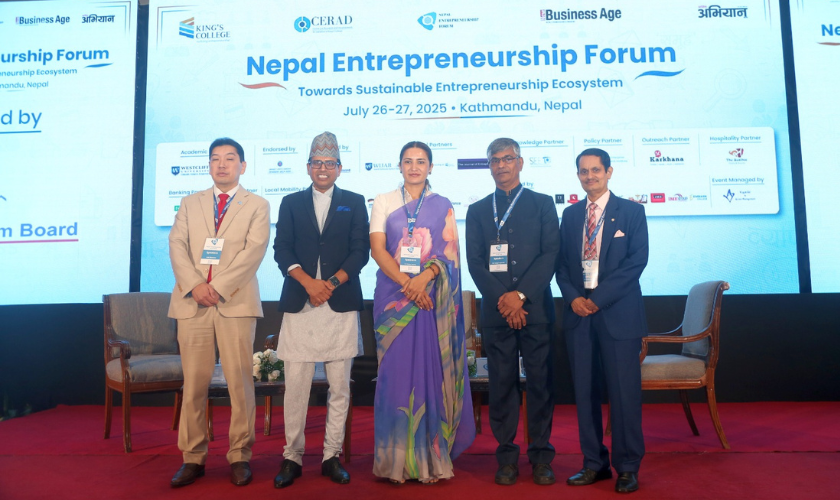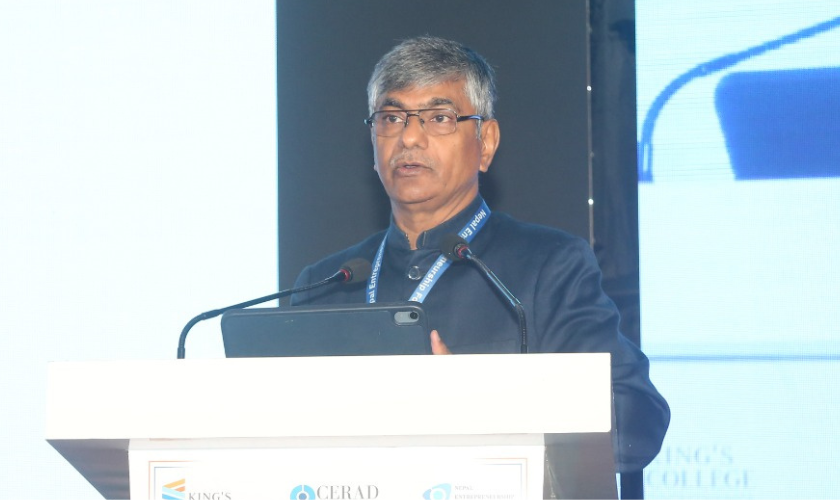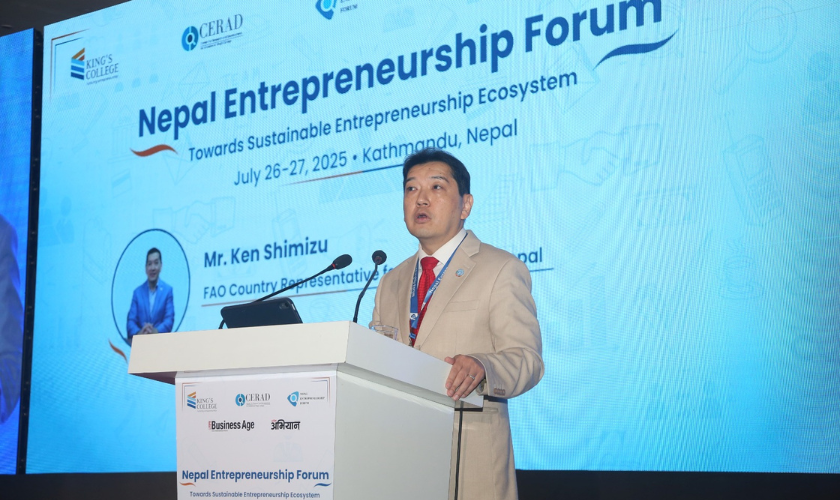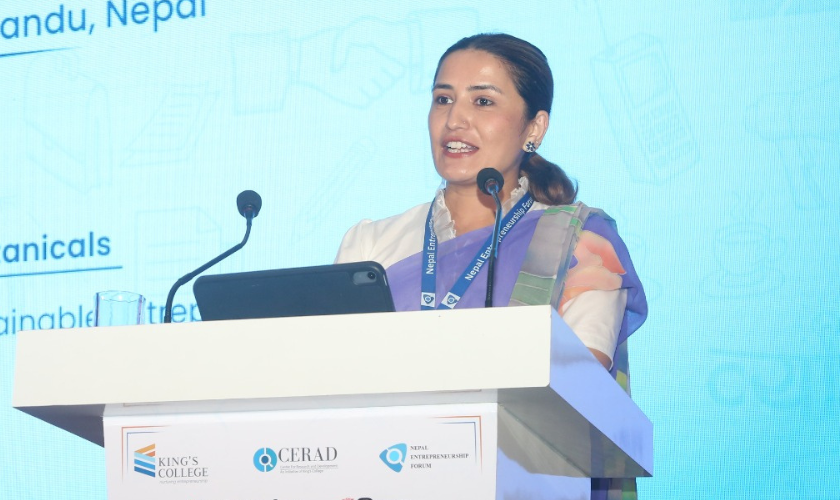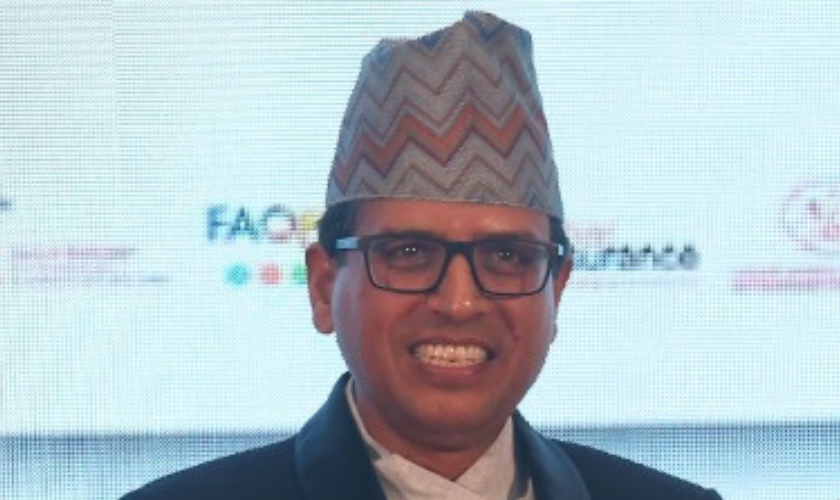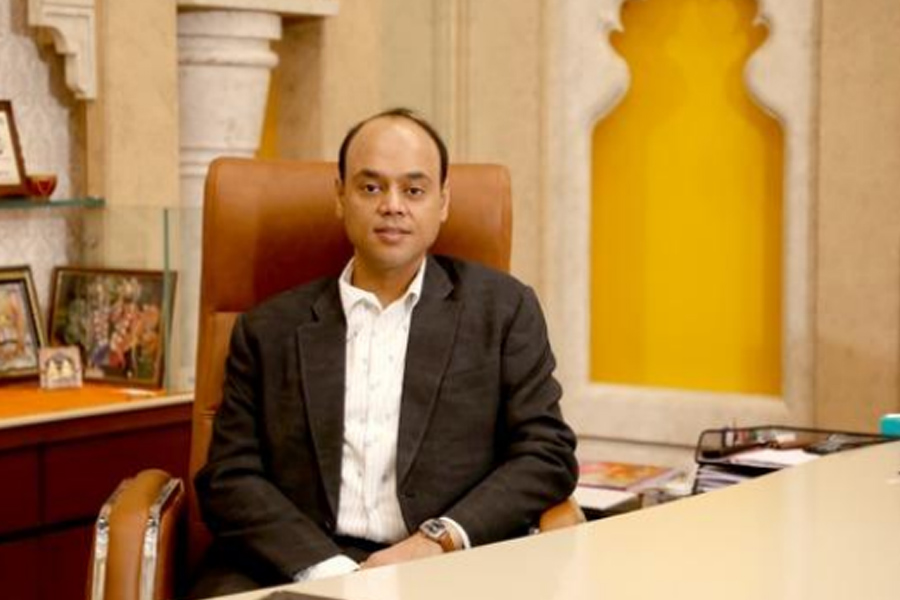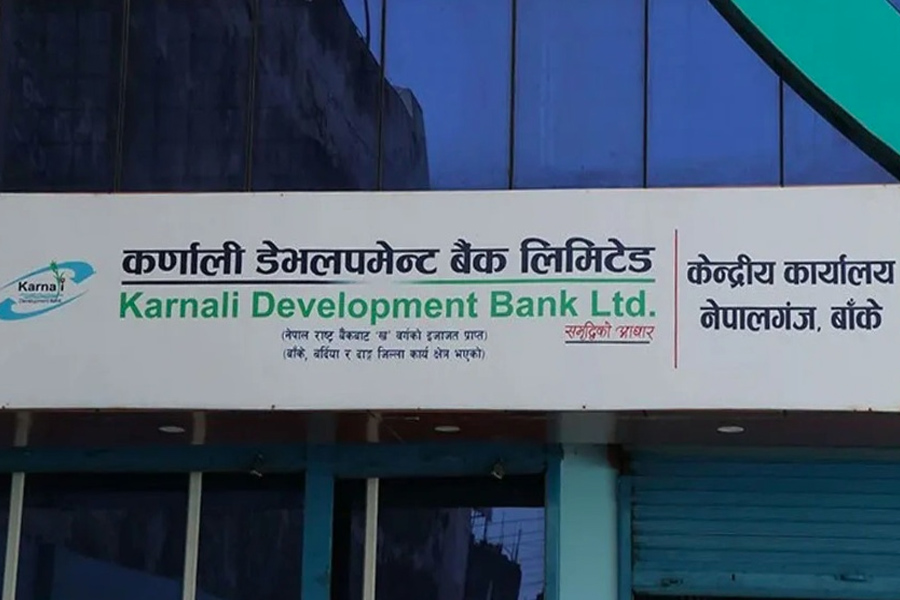The Nepal Entrepreneurship Forum, organised by King’s College and its research wing, the Centre for Research and Development (CERAD), in association with New Business Age, began in Kathmandu on Saturday, July 26.
Over 500 entrepreneurs, thought leaders, researchers, policymakers, educators, and students attended the opening day of the two-day conference, held under the theme “Towards a Sustainable Entrepreneurship Ecosystem”.
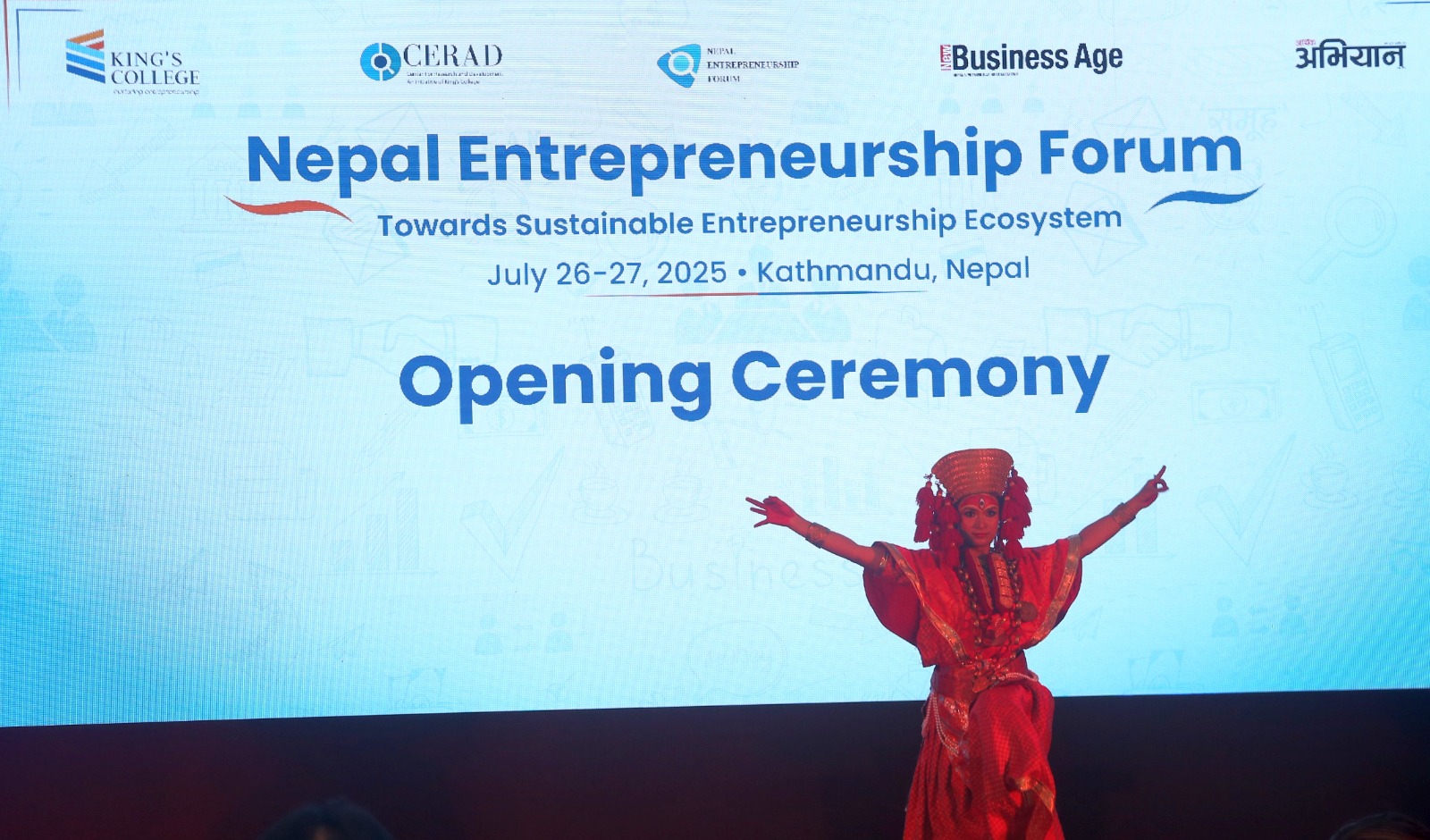
The event opened with a traditional Kumari dance performed by Melina Shrestha.
In his welcome remarks, Chittaranjan Pandey, Head of CERAD and the Conference Convener, said, “This gathering marks a special milestone, from the 2016 International Conference on Social Entrepreneurship to today’s Nepal Entrepreneurship Forum.”
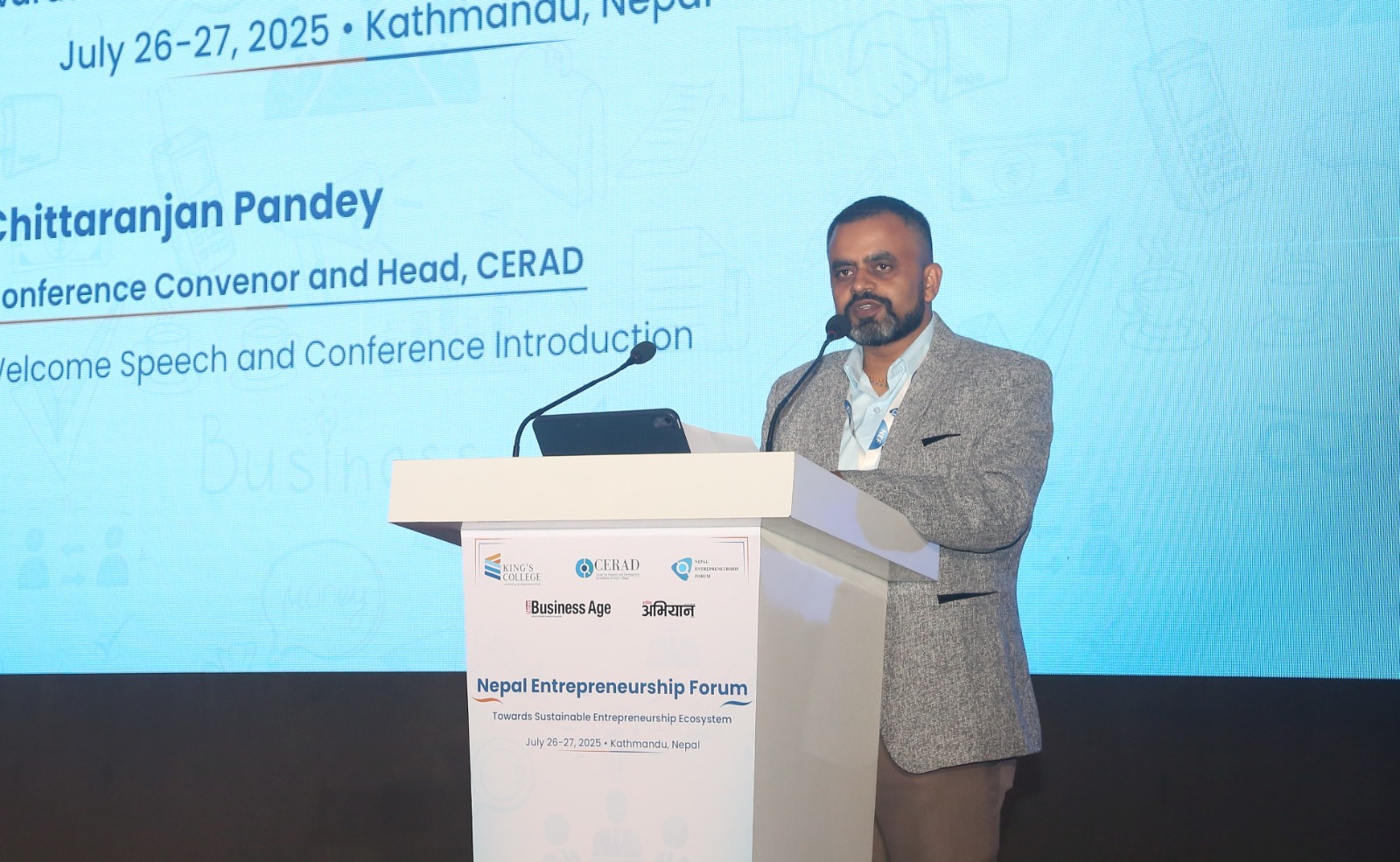
“Each step has helped us foster an environment where like-minded individuals can meet, grow, and contribute to building a vibrant, inclusive, and forward-thinking entrepreneurial ecosystem that drives economic growth,” he added.
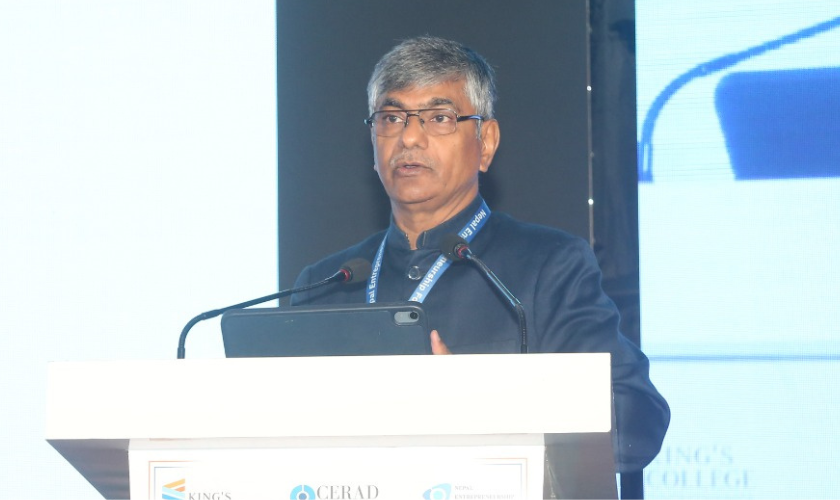
Delivering the keynote address, Prof. Satyajit Majumdar, Managing Director of TISS Incube Foundation, spoke about sustainability in entrepreneurship. “We are in the era of a technology-driven society and business, where the speed of technology is ahead of the market,” he noted. He stressed that “sustainability has to align with SDG goals,” and posed the question: “How do we use entrepreneurship as a medium to get this done?”
[Read: Inclusive, Tech-Led Entrepreneurship Key to Sustainable Growth: Prof. Majumdar ]
Dr. Prativa Pandey, Founder and CEO of Herveda Botanicals, reflected on her entrepreneurial journey, emphasising three key themes: ecosystem, trust, and growth readiness.
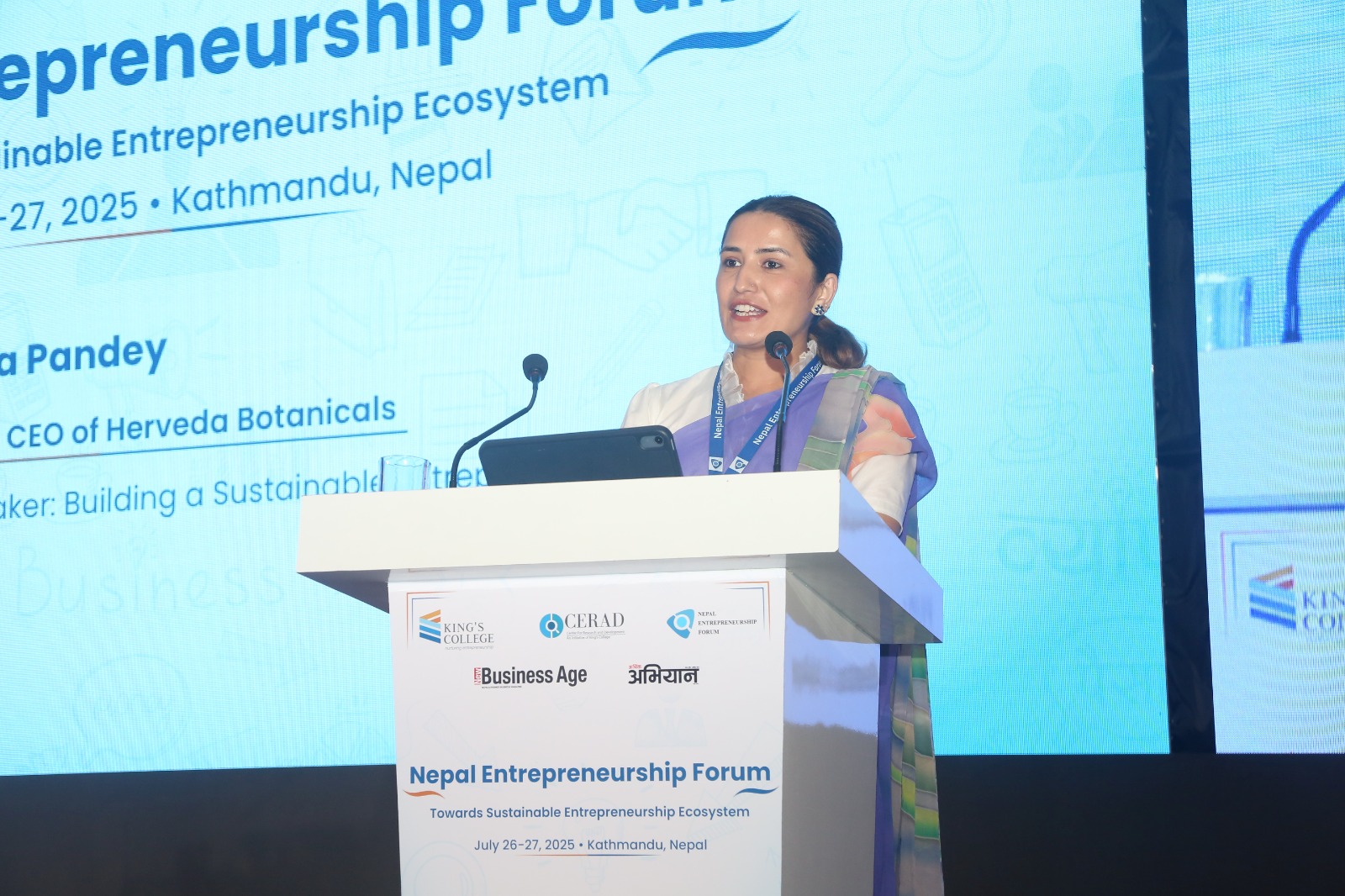
“Success is deeply interconnected with the broader ecosystem, not just the individual enterprise,” she said.
[Read: Entrepreneurship Is Not a Solo Act: Dr. Prativa Pandey ]
Highlighting Nepal’s fragile context, she added, “Trust is the foundation of any enterprise and is built over time through collaboration and shared knowledge.” At Herveda, she noted, partnerships are based on “credibility and trust rather than just contracts.”

Ken Shimizu, FAO Country Representative for Bhutan and Nepal, highlighted the potential of entrepreneurship and AI in Nepal’s agriculture. He congratulated the organisers for fostering a sustainable ecosystem, while also pointing out ongoing challenges—limited finance, bureaucratic hurdles, low digital literacy, poor infrastructure, environmental risks, and skilled labour shortages.
[Read: Nepal Must Bridge Gaps to Grow Agri-Business: FAO’s Shimizu ]
Shimizu outlined FAO initiatives, including partnerships with King’s College and the World Food Forum Nepal Chapter, and investment programmes such as Hand-in-Hand. He underlined AI’s growing global role in smart farming and called on Nepal to “bridge the digital divide” to ensure vulnerable communities also benefit. He acknowledged the government’s increasing investment in AI as a sign of hope for the future.
[Read: President of King’s College Urges Unified National Vision for Entrepreneurship ]
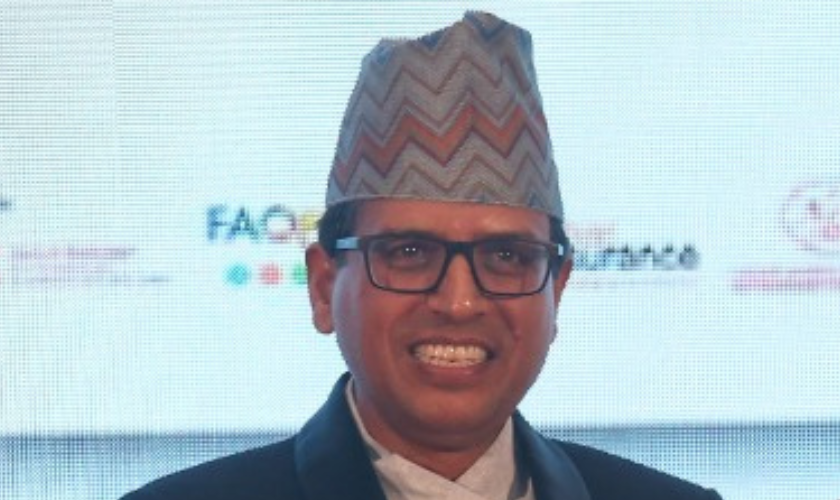
In his closing remarks during the opening ceremony, Narrottam Aryal, President of King’s College, noted the progress in Nepal’s entrepreneurial landscape. “King’s College is immensely proud to be an integral part of this historic, exciting, and impactful journey,” he said. “I sincerely thank the many actors across our ecosystem who have supported, guided, and collaborated with us throughout this journey.”
The first plenary session focused on building a sustainable entrepreneurship ecosystem in Nepal and beyond. Panellists included Dr. Archana Singh, Chairperson at the Centre for Social Entrepreneurship, School of Management and Labour Studies; Dr. Auriane Meilland, Policy Specialist on Climate and Biodiversity at UNDP Nepal; and Amigo Khadka, Co-founder of Nepal Tea Collective. The session was moderated by Bibhusan Bista, Co-founder of Young Innovations.
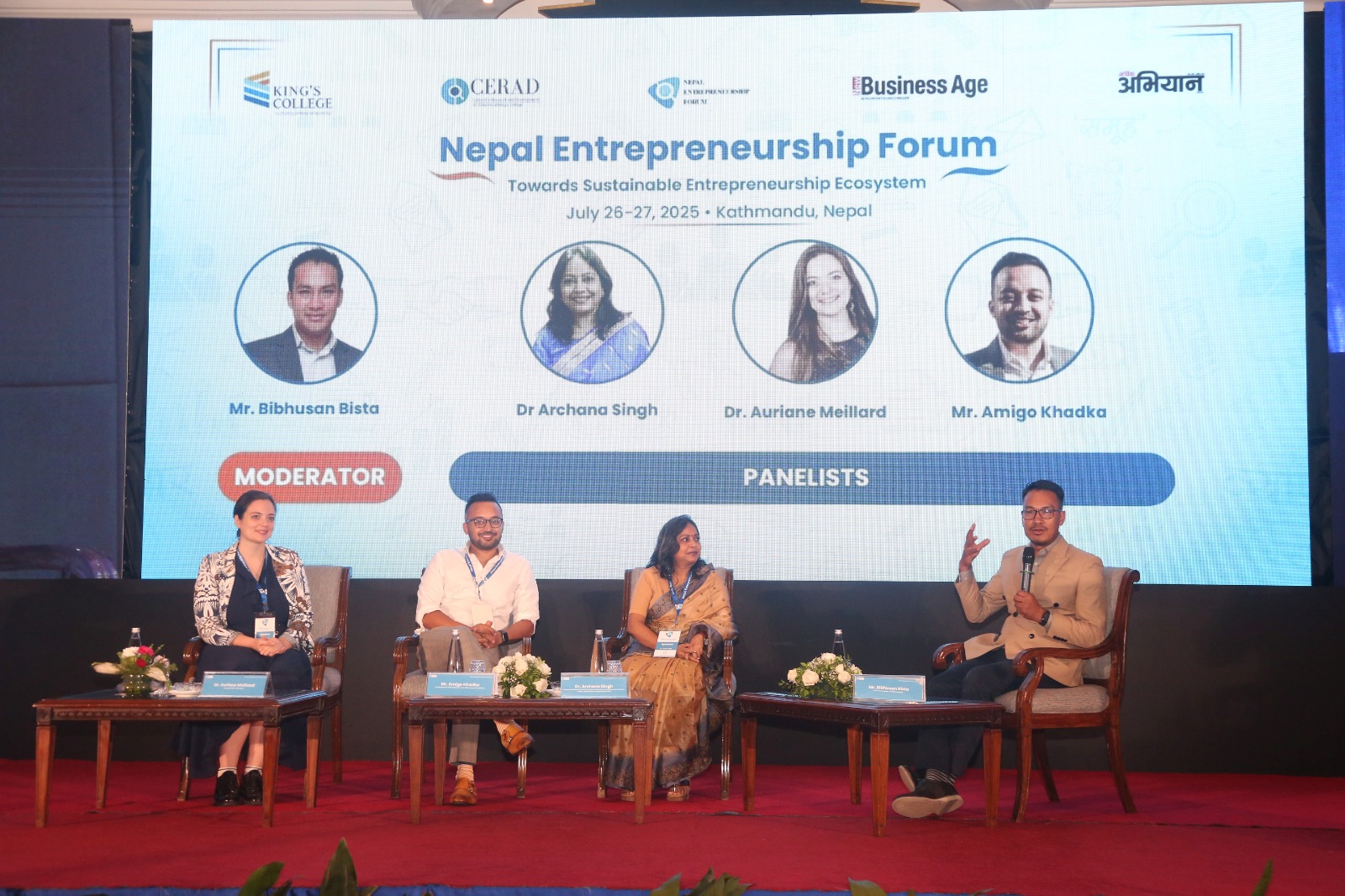
The panel discussed economic freedom, inclusive education, climate-smart practices, mentorship, policy reform, and public–private partnerships. It concluded with reflections on how to integrate profit, purpose, and environmental responsibility into entrepreneurship.
Parallel sessions explored entrepreneurship in relation to innovation, economy, community, inclusivity, and development.
One of the presenters, Umes Shrestha, Head of the Centre for Innovative Pedagogy and Learning (CIPL), spoke about how businesses can strategically leverage miscommunication using the “Acid Framework.”
Sushant Rijal and Yomoo Bajracharya presented their experience running the Communiversity fellowship programme, which focused on building skills like problem-solving, communication, collaboration, and mindfulness.
The final plenary session centred on sustainable innovations in agriculture, waste management, and education.
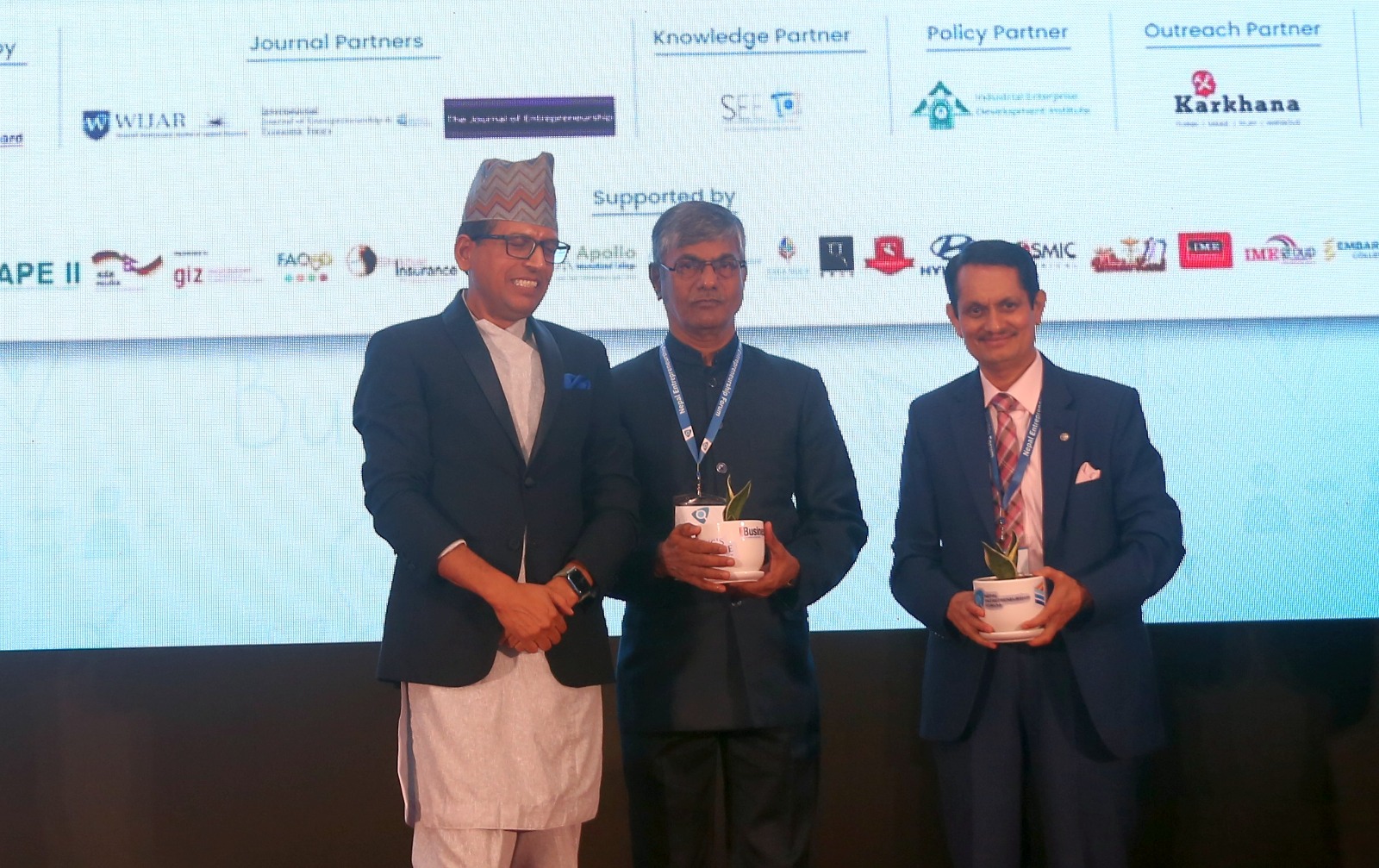
The panel featured Amun Thapa, Co-founder of Khaalisisi; Mahendra Shrestha, dynamic agriculture practice expert; Sanchit Aggarwal, Co-founder of Thynaa Healthy Naturally; and Vedika Murarka, Co-founder of Educase. The session was moderated by Pavitra Bahadur Gautam, CEO and Co-founder of Karkhana.
The speakers emphasised that innovation must blend profit with purpose, while also being inclusive and sustainable.
To conclude the session, Madan Lamsal, Chairman and CEO of New Business Age, presented a token of appreciation to the panellists and moderators.

